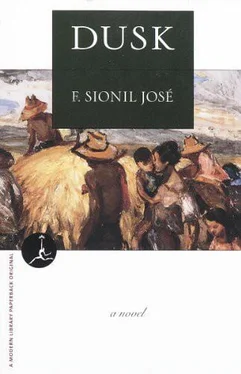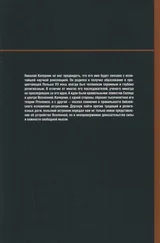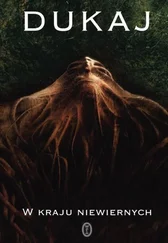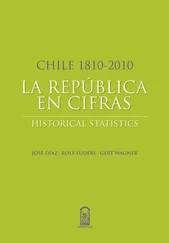The carabaos were not too sure of their footing, and the carts jerked and swayed with every boulder; then the wheels tumbled across.
Istak could feel the current, at first slight and then a steady pushing against his legs. As he moved deeper toward the middle of the river, it came as a powerful force that could easily have swept away the children if they had not been in the carts, holding on to their mothers. An-no in the lead kept screaming at them to go straight for the middle and not to stray and fall into the depths and be washed away. The ten carts were now well into midstream. There was no turning back.
An-no finally hit the bridge. “I am here,” he yelled at them, his voice carrying through the rush. He was waist-deep now in the brown swirling waters.
Then Istak saw the big branches of trees, huge swatches of grass and reeds that must have been torn away upstream, and they rushed toward the carts, sometimes pushing them dangerously close to the edge of the embankment.
One of the men went toward the left to push away the branches that had gathered on the side of a cart. They moved on, swaying and jerking as they went over the coconut bridge, the water pushing steadily against the solid wooden wheels.
Within the carts, some of the children were shouting, enjoying the sight of the swirling waters, unaware of the danger they were in. The first cart was now over the bridge. An-no was going up and was shouting again, telling them to keep a straight line, that the bridge was not that long, and it was still solid underfoot. As he went up, he saw it. He shouted, fright in his voice, for in the middle of the river, hurtling toward them with the current, was a huge uprooted tree.
The men shouted and pulled at the leashes of their carabaos . The women and the children peered out of the carts, at the mountain of leaves and branches racing toward them. On its downward rush the tree had also amassed reeds and water lilies.
Istak led the last cart with Mayang and their seed rice. If he tarried, the tree might sweep away the coconut trunks underfoot. He was now in the middle of the river, directly in the path of the oncoming tree. He shouted at the animal to hurry. It was then that the cart refused to budge, its wheels stuck between the coconut trunks. No matter how he pulled at the poor beast, the cart would not move. He shouted at his mother to get out quickly, but Mayang, perhaps too tired to move, did not hear, or if she heard, she acted too late. The tree was upon them like an avenging hand.
It towered over the cart, swallowing it. Istak felt the trunks under him give way. He let go of the leash and ran to the other side, the leaves, branches, and island of reeds engulfing him. For a moment, the green mass seemed to smother him. His legs, his body, were being pushed toward the rim of the embankment. But his feet touched a boulder, solid and secure, and the mountain of branches and leaves swept by. He emerged in time to see the carabao slip into the water, the wheels of the cart bob up briefly, then disappear altogether. It was but an instant, but like a lightning flash in the darkened sky, fate passed before him. He witnessed it all and did not move, the current eddying around him, while the men who were on the shallow side of the river raced past him and, screaming at one another, dove into the river. And when they surfaced, they were already downstream. They swam back toward the shallow rim of the river, then to the embankment, and dove again and again. The carabao , which had broken free from its harness, was recovered; it was no stranger to water. Some of the men who were waiting for the ferry at the other side saw what had happened and they, too, joined in the search.
Not once did Istak dive. He prayed that his mother might finally be granted the peace she never had in life.
Far into the afternoon, they ranged along the river, but found no trace of the cart.
At sundown, they stopped and set up camp for the night. Beyond the river were newly opened fields and Carmay — a solitary village on the fringes of a forest being cleared. The great trees that had not yet been felled were burned; they stood around like huge black skeletons. The caravan found refuge from the rain in the houses, and the women, who had no dry firewood, cooked the evening meal in the stoves of kindly villagers.
Early in the evening, the three brothers sat down together for the first time in weeks to a meal prepared by Dalin. They had barely spoken to one another the whole day, and though words were not uttered, Istak knew that his brothers resented him; perhaps they even blamed him for their mother’s death. Why did he not dive at all — he, the eldest son — when even men who were strangers helped? Why did he give up too soon?
The vegetable broth warmed their insides, and the salted fish with crushed tamarind tasted good. Istak had no appetite; he put into words the thoughts that rankled An-no. “Do not blame mc, my brother, for our mother’s fate. Do you think I wanted her dead? Who is the son who would wish this on his mother? I would not have been able to save her. The hands of fate are stronger than mine. I prayed.”
“You did not even try.” An-no’s words were like prongs that dug into his flesh.
Istak bowed, then stood up and walked away, down the muddy path toward the river, the dusk thickening around him, the insects noisy in the grass. Dalin, who was serving them, followed, but Istak waved her back: “Let me be alone,” he mumbled.
What was it, really, that had happened to him on that submerged bridge? Why did he not dive after the cart? It all came back — how it was when Ba-ac was nowhere to be found. In his mind, it had quickly formed — this knowledge, this certainty that the old man was dead. And again, at the river, it had flashed through his mind clearly, that there was nothing he could do, as if something stronger than the current had held him back, telling him he could do nothing, nothing. He was not a coward, he reassured himself; when he decided to stay behind in Po-on, he was fully aware of the risk. What was this in him that seemed to guide him in his deepest thoughts? Was it some supreme intelligence that he had gleaned from the kumbento in Cabugaw? If only he could explain this to his brothers, if only he could put into words these fears and feelings, inchoate and yet so real.
It was not just Mayang they had lost. Lost, too, were the sacks of seed rice which must have pinned her down when the cart overturned. Now they would have nothing to plant and little to eat. But at least they were alive; they could subsist on weeds and insects. Ilokanos can eat what other people cannot. And most of all, with the bridge gone, for the moment, at least, they were farther away from Capitán Gualberto and his Guardia.
The rain resumed the following morning and the fields around them were flooded. The road to the valley, Dalin said, would be a quagmire. Istak and his brothers left Carmay early and paced the riverbank, asking the few settlers who lived nearby if they had seen the cart or Mayang, but no one had. The water was higher, with more islands of water lilies and reeds, occasional logs and small uprooted trees that drifted with the current.
All through the journey, Istak was amazed at the kindness of villagers, how readily they were invited to sleep in kitchens, in sheds, or under the houses if there was no space upstairs. He understood then how Dalin and her family could go so far with a cart loaded with more goods to sell than what the family needed to live.
He asked them to please bury his mother if her body ever surfaced; he would surely come back to find out and to express his gratitude to whomever had done the Christian thing.
At noon, Istak asked his brothers and everyone in the caravan to join him at the riverbank to pray. Dalin had gathered a basket of white rosal flowers in the village, and these she made into a wreath which she then tied onto a small raft made of banana trunks.
Читать дальше












